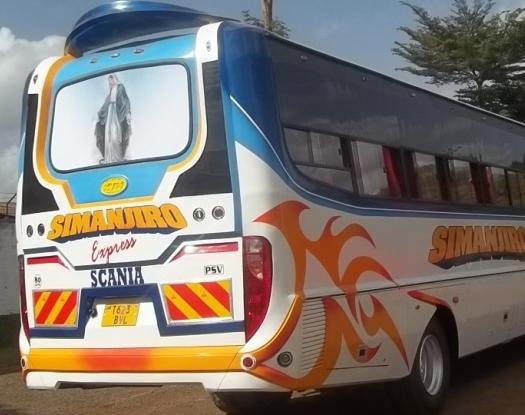
Joseph Otieno, acting managing director, discusses how KVM, and Kenya as a whole, is attracting the interest of some of the planet’s most recognisable players in the automotive industry.
What the average individual knows about present day Kenya most likely extends only to its natural wonders, from Lake Victoria, the world’s second largest fresh-water lake, to the open plains of the Maasai Mara. What will be less well-known is that, in and around its largest cities, Kenya is fast becoming an area of great interest for some of the world’s biggest vehicle manufacturers.
Incorporated in July 1974, at first under the name Leyland Kenya Limited, the company adopted its current moniker in 1989. Production for the company began in 1976, with the first vehicle rolling off its assembly line in August of that year. Originally designed to produce light and heavy commercial vehicles including Land Rovers, Range Rovers, Volkswagen Microbuses and Leyland trucks and buses, the model range produced by KVM now numbers 11 and includes Nissan Series, Land Rover, Foton and Hyundai models.
KVM is today owned by three major stakeholders, those being the Kenyan Government, which owns 35 percent, CMC Holdings Limited and D.T. Dobie and Company, which own 32.5 percent respectively. From its plant in Thika, which covers an area of 40 acres, 18 of which has been earmarked for further development, KVM undertakes contract assembly on behalf of its customers. “As a direct result of our investment in infrastructure,” acting managing director, Joseph Otieno explains, “we currently have the capacity to produce approximately 6600 vehicles per annum working single shifts.”
Operating in the five key sectors of vehicle assembly, bus body building, special vehicle operations, fabrication and surface branding, KVM also actively engages in the sale of mega tents. The primary markets for the vehicles that depart the company’s factory are located across East Africa and include countries such as Tanzania, Burundi, Uganda, Zambia and of course Kenya itself.
By abiding by its guiding principles of quality through standards, customer and supplier intimacy, teamwork and individual employee participation, environmental management and uncompromised integrity, KVM is constantly striving to be the benchmark vehicle build and mass fabricator in the region.
“Ever since it became the first vehicle assembly plant to be incorporated in Kenya,” Otieno continues, “KVM has always made it a priority of the highest order to invest in itself through the updating of its factory with world-class equipment, through the employment and retention of technically gifted staff and by obtaining all of the necessary operational quality certificates, including ISO:9001-2008.”
In recent years KVM has also become one of East Africa’s preferred producers of high quality buses. From its bus body building facility the company constructs minibuses, and medium and large buses with on board capacity ranging from 29 to 67 seats. Building according to specifications that conform to individual customer requirements, the company has successfully standardised its body frame works by building them off jig.
Bus production facilities at the company’s plant are laid out in a flow line, with the actual body building being carried out on a trolley. This layout allows the bodies to be built in advance and temporarily stored away before being attached to the vehicles’ chassis. Additionally, KVM has introduced a number of key features to its production line including the adding of fibre gas windscreens to the front and rear of its 62 to 67 seat buses.
Alongside its bus body building capabilities, KVM has also built a reputation for its ability to construct tough, long lasting truck bodies, designed to suit the intended purpose of individual vehicle types. The company is able to provide its customers in this field with trucks that possess completely covered exterior bodies, back bodies with open spaces or with side doors.
One of the more exciting on-going developments involving KVM, and other vehicle manufacturers throughout the region, is the growing interest from Chinese vehicle manufacturers. At present, KVM collaborates with the Chinese company Foton Motors, assembling its Foton Sup V Double Cab and Foton Sup V Single Cab pick-up models.
Although its operations in Kenya are little more than a year old, the success Foton has already had through its partnership with KVM means that it already targeting sales of more than 5000 of its trucks across the regional market over the next two years. It is announcements like this that have further drawn the attention of other large players in the sector.
“Following in the footsteps of our work with Foton,” Otieno states, “we have received a number of enquiries from other Chinese motor vehicle firms that are interested in the possibility of having their models assembled here in Thika. We are seeing such interest building as more Chinese businesses are now looking to acquire manufacturing capabilities in Africa.” Kenya in particular is a very strategically beneficial place for these businesses to be as it is able to provide the means to penetrate the East Africa market, which many view as a strong area of future growth.
KVM’s presence within a country that is rapidly growing into a regional hub for automobile manufacturing is enough in itself to give it optimism for the future. Otieno, however, knows there is a lot more the company can do to capitalise on this. “The sheer number of opportunities, as it relates to vehicle assembly, that are arising in this part of the world means that we foresee our assembly operations increasing quite dramatically. What we need to do meanwhile is continue to invest in our equipment, our processes and our people. By doing so we will be able to maintain and even improve on the quality levels that we have spent nearly 40 years being known for.”
Written by Will Daynes, research by Abi Abagun
DOWNLOAD
 KVM-EMEA-Nov12-Bro-s.pdf
KVM-EMEA-Nov12-Bro-s.pdf













